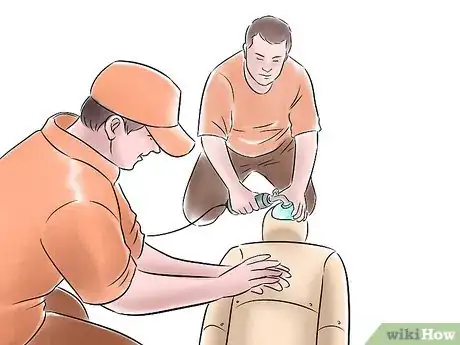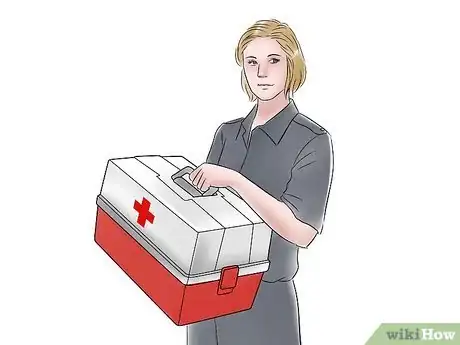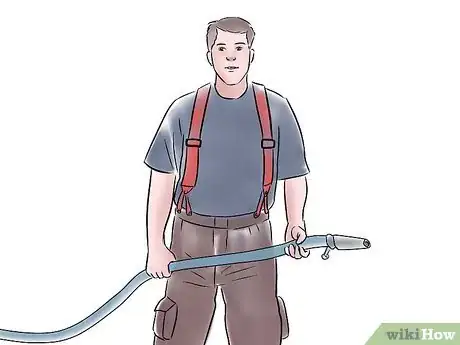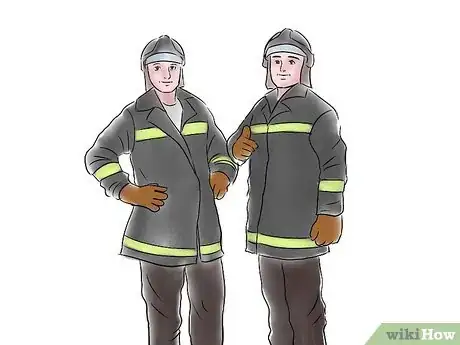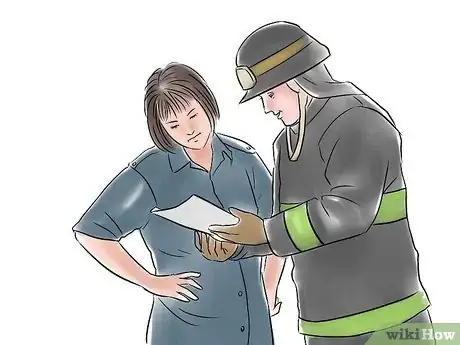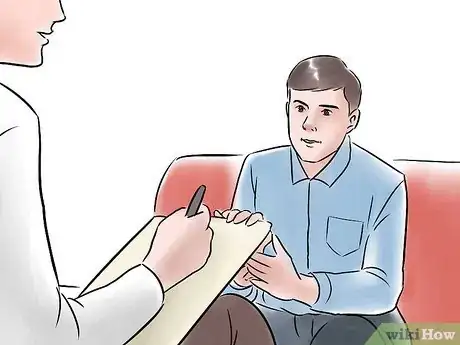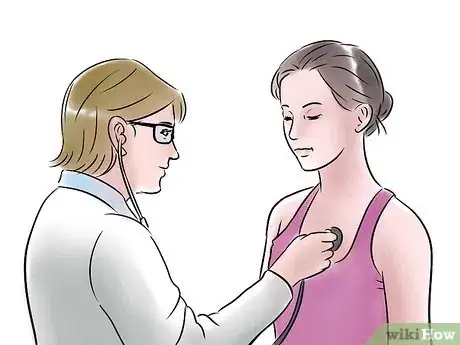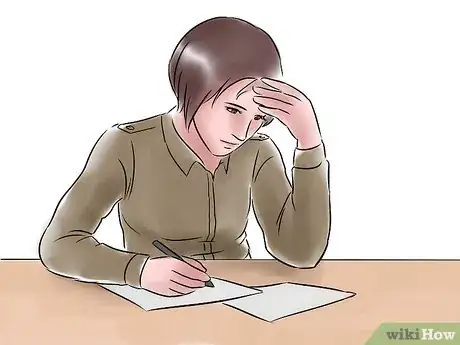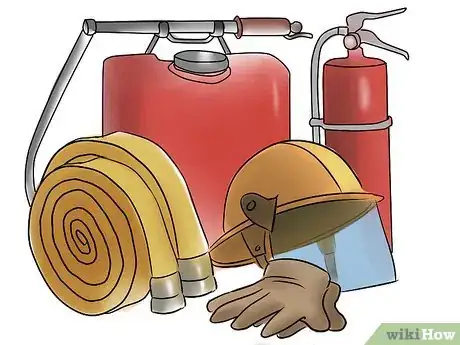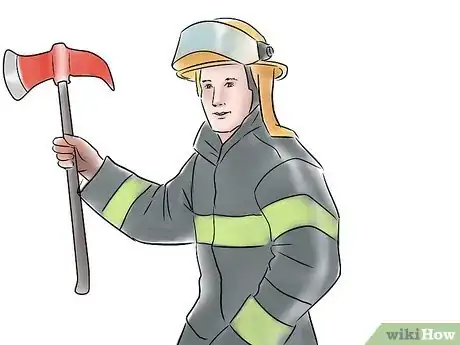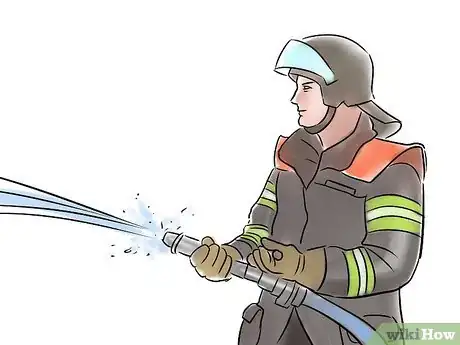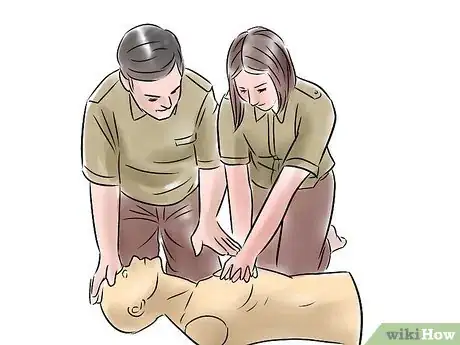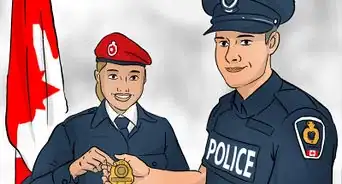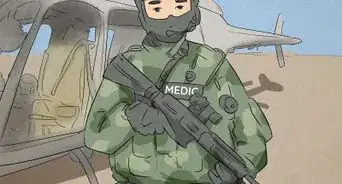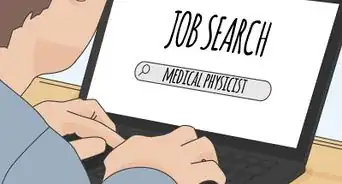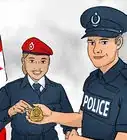wikiHow is a “wiki,” similar to Wikipedia, which means that many of our articles are co-written by multiple authors. To create this article, 41 people, some anonymous, worked to edit and improve it over time.
This article has been viewed 289,478 times.
Learn more...
Firefighters are true heroes who go above and beyond to ensure the safety of their country's citizens. The job is not only noble, but it is highly coveted, with an average salary of over 47,000 dollars a year and a job growth rate of 19% predicted between the years of 2008-2018. But if you want to be a firefighter, you have to think seriously about the impact the job can have on your physical and emotional well being, as well as the toll it can take on your family. Think you have what it takes to be a firefighter? Read on to find out.
Steps
Meeting the Requirements
-
1Be at least 18 years old. This is the minimum age requirement for being a firefighter. However, in some states, you will have to be at least 21 to apply, so look in to the requirements in your own state.[1]
-
2Have a high school diploma or its equivalent. You'll need to have a high school diploma or a GED to apply to be a firefighter. Remember that this is the bare minimum educational requirement; it's a tough market, so you can up your chances by continuing your education (find out how in the next section).Advertisement
-
3Have a driver's license. You will absolutely need a driver's license to be a firefighter, not to mention a clean driving record. If you don't have one yet, it's about time to get around to it. Any firefighter should be available to be the driver at any time.[2]
-
4Have a clean record. The fire department will run an extensive background check, so make sure that you don't have any traffic issues, felonies, or records of chronic drug use in your past. The background check packet can be as long as 25 pages, so it will cover every little part of your existence.[3]
-
5Get EMT training. Though this is not an absolute requirement, the majority of department do require EMT certification for all candidates and over 90% of them will require this certification after the hiring process. Firefighting isn't all about putting out fires; in fact, many fire departments run over 70% or more emergency medical related responses, so having EMT training is crucial for success. Having the training will also make you a more desirable candidate because you have more experience and a better sense of what the job takes.[4]
- Also, having the certification means that the fire department will have to provide you with less training during your training process. This will make them even more inclined to hire you.
Being a More Desirable Candidate
-
1Get an associates or a bachelor's degree. Though a bachelor's degree is not required, over 70% of people who want to be a firefighter eventually move on to other careers. So, to make yourself the most desirable candidate, you should ideally have an associates or a bachelor's degree, studying topics that are relevant to firefighting, such as Math, Chemistry, Biology, Communication Skills, or even Computer Literacy. You can even go so far as to earn a degree in fire science or fire protection engineering.
- Another degree option is enrolling in a 2-year Associate of Public Safety and Security degree. The curriculum will cover courses in criminal justice, terrorism, public administration, protection management, administrative law, screening, patrolling, cyber crime, dynamics of violence, etc.[5]
- You can also take fire technology classes at a local community college, even if you don't earn a degree. This will demonstrate an interest in the profession and will give you a better sense of what you're getting yourself into.
-
2Become a licensed paramedic. If you have your EMT training, then you can apply to paramedic school. Again, this isn't a requirement, but it will make you stand out during the application process. Many departments are actively looking for licensed paramedics. Of course, you shouldn't go down this path unless you're really interested in EMS and in being a paramedic; don't go to paramedic school just to increase your chances of being a firefighter.[6]
-
3Introduce yourself to the firehouses where you will apply. Before you send in your application, stop by the different firehouses to introduce yourself, get a sense of what the people are like, and have a better eye for how the firehouse operates. If you take this extra step (without being annoying), then you will sound like a more committed candidate when you are interviewed and can say things like, "One thing that really impressed me about the firehouse here was..." This will make you sound more serious about your commitment.[7]
-
4Volunteer in your community. Being a firefighter requires dedication and commitment to your community. Don't volunteer just to up your chances of getting hired, but because you have a sincere interest in caring for your fellow citizens. You don't have to do anything fire-related, either; just showing that you care about taking care of children, elders, or other people in your community who are in need reinforces your dedication.[8]
-
5Work your way into the department in other ways. There are a few ways you can make yourself stand out in your community before you apply. Here are a few things to try:
- Become a volunteer firefighter. You will still have to meet the basic requirements of being a firefighter, but won't be compensated for your efforts. If you're already doing this, it will make it easier for you to get hired as a firefighter, but if this is your career goal, you should want to be a salaried employee.
- Take a municipal job such as a 911 dispatcher
- Help out as a seasonal wildlife crew helper
-
6Read up on the fire service. Before you get your foot in the door, you'll have to learn as much as you can about the fire service in general. Though it's important to learn the nitty-gritty of being a firefighter, it's equally important to understand the general trends and concerns of the industry. It will be likely that the fire department may ask you questions like, "Where do you see the fire service in five years?" or "What are the two biggest concerns in this career field today?" So, know your stuff.[9]
Acing the Application Process
-
1Pass your background check. The background check can be a document as long as 25 pages that asks for all of your education information as well as your diplomas, all of your work experience, as well as references, as well as a myriad of other questions. You will often be given the background check packet and will be asked to return it within a week; so, before you apply, be prepared with transcripts, lists of references, and any relevant information that will be asked of you.[10]
-
2Pass the psychological evaluation. You will be given a psychological exam to determine if you are able to handle the stresses and the pressures of the job. You will also need to demonstrate courage, as well as the ability to communicate effectively and use your analytical skills.
-
3Pass the medical exam. To be a firefighter, you will need to have coordination, agility, and strength, as well as an overall high level of physical fitness. You must also be in general good health and be free of any physical constraints.
-
4Pass the CPAT (Candidate Physical Ability Test). This is a rigorous test that will require you to demonstrate your speed, agility, strength, and endurance. The test generally includes 8 exercise drills that must be completed in 10 minutes and 20 seconds or less and is evaluated on a pass or fail basis only. You will also have to complete the test while wearing a 50 lb. vest, long pants, a hard hat, and other heavy equipment. Though you should check the exact CPAT requirements, you should be able to complete the following tasks:
- The stair climb. Climb 60 steps for 3 minutes with two 12.5 lb. weights on each shoulder.
- The hose drag. Place the end of a 200 feet (61.0 m). hose on your shoulder and drag it around various barriers until the 50 feet (15.2 m). hose mark crosses a finish line.
- The equipment carry. Carry two saws 75 feet (22.9 m). around a barrier and return them to the starting point.
- The ladder raise. Walk to the top rung of a 24 feet (7.3 m). ladder up a stationary wall.
- The forcible entry. Use a 10 lb. sledgehammer to strike a measuring device until a buzzer sounds.
- The search. Crawl on hands and knees in a tunnel maze.
- The rescue drag. Drag a heavy mannequin around a barrier.
- The ceiling breach and pull. Use a pike pole to push up a hinged door and a ceiling device.
-
5Pass a written exam to test a variety of skills. These skills include topics such as communication, judgment, problem solving and memory. There are guides available to help you study for the firefighter exams. Most departments rank the order of hiring by the exam scores. It is important to have the best score possible.
Succeeding in Your Career
-
1Train at a fire academy. The academy will teach you about different types of fires and how to extinguish each one. You will also learn how to use each piece of equipment, such as the axe, the saw, the ladder, and the hose. Here are some other things you will learn during the rigorous training process:
- Firefighting techniques
- Fire prevention
- Hazardous materials control
- Emergency medical procedures
- Learning building codes to give fire inspections
- How to carry out rescue operations
- How to handle hazardous materials
-
2Begin your hands-on experience. After the training academy, you will be placed in a fire department to gain hands-on training with firefighters. You may or may not be paid for this training experience. You will be eligible for the title of a professional firefighter after you have passed all exams and completed your hands-on training. However, some departments have a list of candidates waiting to be hired full time.
-
3Get hired full time as a professional firefighter with regular firefighter pay. Once you're done with your hands-on experience and have been accepted to be a firefighter, then get ready to begin the grueling and rewarding tasks that are required for success in your job. You should be proud to be hired, but you should always be on your toes and keep working to gain new skills and improve your knowledge.
-
4Gain some expertise. Though you have met many requirements and have demonstrated impressive skills to get hired, the job never stops. There are many other additional skills you can gain, and even more training that you can do to make yourself the best firefighter you can be, and to make yourself more useful to your firehouse. Your training can depend also on what is most needed in your department; for example, if they are desperate for a Spanish speaker, get some bilingual training. Here are some other ways you can gain some experience:[11]
- Get First Aid and CPR training
- Earn a graduate degree in public administration
- Get EMT or paramedic certification if you haven't already
- Get lifeguard certification
- Get hazardous materials certification
-
5Stay physically fit. If you want to be the best firefighter you can be and to continue to do your job well, then you have to stay physically fit. Though your job itself will be rigorous and demanding, spending some additional time at the gym, running weekly, and keeping a sound eating and sleeping regimen will help you continue to do your best. Whatever workout you pursue, it should include both strength training and aerobic workouts.
References
- ↑ http://www.firecareers.com/how-to-become-a-firefighter.html
- ↑ http://www.firecareers.com/how-to-become-a-firefighter.html
- ↑ http://www.firecareers.com/how-to-become-a-firefighter.html
- ↑ http://www.firerescue1.com/fire-jobs-search/articles/755562-becoming-a-firefighter-10-must-do-things/
- ↑ http://www.myway.com/education/criminal-justice/public-safety-and-security
- ↑ http://www.firerescue1.com/fire-jobs-search/articles/755562-becoming-a-firefighter-10-must-do-things/
- ↑ http://www.firerescue1.com/fire-jobs-search/articles/755562-becoming-a-firefighter-10-must-do-things/
- ↑ http://www.firerescue1.com/fire-jobs-search/articles/755562-becoming-a-firefighter-10-must-do-things/
- ↑ http://www.firerescue1.com/fire-jobs-search/articles/755562-becoming-a-firefighter-10-must-do-things/
About This Article
If you are at least 18 years old and you have a high school diploma or GED, a driver’s license, and a clean background, you may be able to become a firefighter. You may be able to increase your chances of being hired by earning a bachelor’s degree, working as a volunteer firefighter, or becoming a licensed paramedic. If you pass the rigorous psychological and physical evaluation during the application process, you will need to attend a fire academy to learn about fire prevention, firefighting techniques, emergency medical procedures, and more. If you want to learn more about what to expect from your evaluations, keep reading the article!




